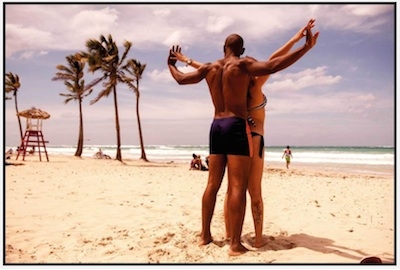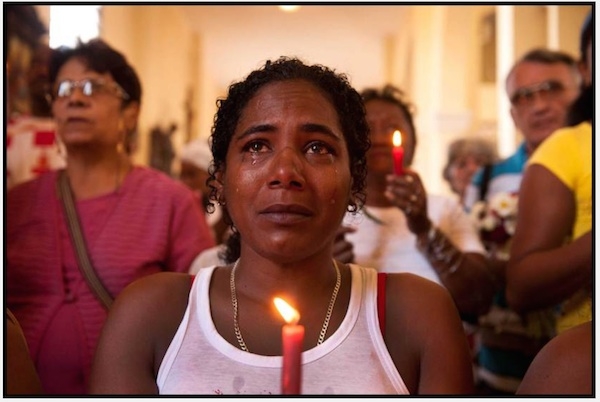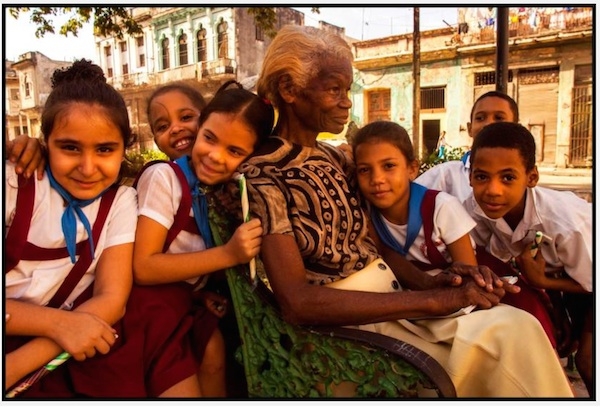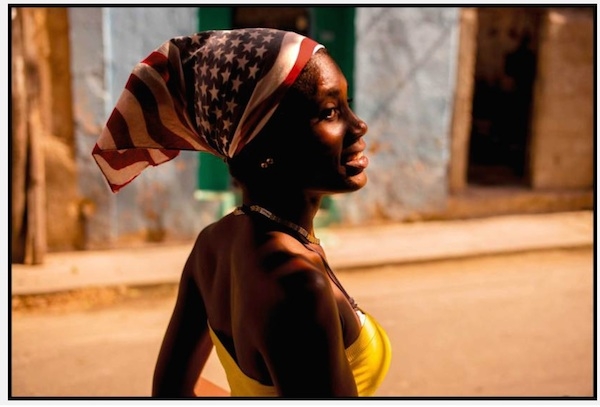Photographer Profile - Peter Turnley: "The Cuban spirit is beautifully contagious"

|
|
|
“I had the feeling that something was happening there,” says Turnley, who had experienced the same feeling before, while covering the fall of the Berlin Wall and the crumbling of the Soviet empire. “My sense told me that Cuba was going to be in many way like Eastern Europe in 1989.”
Through the 1980s and 1990s, Turnley was a contract photographer for Newsweek magazine, based in Paris but constantly on the move, covering the biggest stories of the day, including the Gulf War, the Tiananmen Square protests of 1989, and the end of apartheid in South Africa.
“I woke up in the morning and never knew where I’d be that night,” he says. During the final years of the Cold War, Turnley often photographed Soviet leader Mikhail Gorbachev, and it was while doing so in 1989 that he first traveled to Cuba. He was immediately attracted to the country and its people. “The Cuban spirit is beautifully contagious — it’s very proud, vibrant, upbeat, determined, elegant and graceful,” he says.
Turnley has never stopped traveling, though his career has taken on a new dimension. For the past decade he’s been leading popular street-photography workshops in various locations around the globe. Four years ago, he led his first workshop in Cuba; since then he’s done nearly 20 more there. During those trips, he’s come to know the place well, capturing daily life there with a rare intimacy. “I always find in Cuba a sense of people living not only as individuals, but also as part of a community,” he says.

Now, with the recent normalization of relations between Cuba and the United States, the country is on the brink of even greater change, and Turnley is sharing the Cuba he discovered in a new book, Cuba – A Grace of Spirit. His work, noted Time magazine recently, “goes beyond the outmoded visual cliches of Cuba as a nostalgic clone of American popular culture.”
At the same time, the Museo Nacional de Bellas Artes in Havana, Cuba’s most important museum, is featuring a retrospective of images Turnley has shot around the globe throughout his career. That makes Turnely the first North American photographer to receive a major solo exhibition at the museum since the revolution that brought Fidel Castro to power in 1959.
The exhibition marks another milestone in Turnley’s career, and more: It speaks to both the evolution of a country and that of a photographer who has been everywhere and, in a sense, found a home in a place he loves.
A Time of Opportunities
Turnley, who grew up in Fort Wayne, Indiana, became interested in photography in high school but never formally studied it. He majored in French literature at the University of Michigan and got his masters in political science at the Instituts d'études politiques in Paris. “I always followed the ideas of Cartier-Bresson — that one’s vision comes from what we know about the world, not what we know about photography,” he says. He later assisted French photographer Robert Doisneau, and through Doisneau went to work for the Rapho photo agency. Later, he worked with the Black Star photo agency, where he was mentored by its legendary director, Howard Chapnick.
“I had the great good fortune to be an active photojournalist in the heyday of the tradition model of photojournalism, working on contract for a major weekly magazine and traveling all over the world,” says Turnley. The digital age brought an end of that era, and Turnley has moved on, with few regrets.
“I wouldn’t want to diminish the challenges facing photographers today, but I actually view this current moment as one of the most exciting in the history of photography,” he says. “If we accept the premise — a premise that is fundamental to my idea of photography — that making a photo is about sharing a moment in time with others, then we’ve never had such opportunities as we have now.”
The motor that drives Turnley’s work now is not magazine publishing, but the workshops he leads — his 2016 schedule includes events in Paris, Venice, New York and Cuba, among other locations. “The workshops take me to places I want to go,” he says. Two years ago he also dove into self-publishing with his book French Kiss: A Love Letter to Paris.

“I had published five books previously with major publishers, but I felt that they weren’t getting the exposure or distribution they should have,” he says. “I approached publishing the same way I approached doing complicated news stories — I went about learning everything I could beforehand. The important thing is that I didn’t cut any corners. I used one of the best printers in the world, a company in China.”
The book’s success — the first edition of 3,500 has sold out — prompted Turnley to create his new book on Cuba. “I foresee publishing a book every 16 months to two years for the rest of my life,” he says.
Along with the books, he sells signed prints directly through his website. “Photographers today have the chance to build communities of people who follow their work — that’s a new thing,” he says. “When I was shooting for Newsweek, I would know that several million people were going to see my pictures on a Monday morning. But I never knew who those people were. They were an anonymous community.”
Today, Turnley, engages that community in a direct and far more personal way, through social media and through email lists of people who have attended his workshops and bought his signed prints.
“That kind of change represents a tremendous potential for photographers,” he says.
A Sense of Home
Turnley also sees a great potential for Cuba at this pivotal moment in its history.
“I’ve witnessed changes in the country — one sees it in small increments,” he says. “In that last four years, there’s been a growth of small businesses, and those economic changes are likely only going to accelerate. At the same time, Cubans are very proud of their strong national institutions — their healthcare and public-education systems, which are quite good. I’m hoping the country will be able to maintain those things as free enterprise grows.”
His hopes are grounded in his affection for the country. The catalog for Turnley’s exhibition at the Museo Nacional de Bellas Artes includes an introduction by American journalist Christopher Dickey, the former Paris bureau chief of Newsweek and a longtime friend of the photographer. Dickey writes that in Turnley’s photos of Cuba he finds a sense of someone who has found a home.

“I appreciate those words,” says Turnley. “The notion of home is fundamental for everyone, but particularly meaningful for someone like me, who has essentially been a gypsy for 40 years. My notion of home is probably complex, and it relates to the connections and relations with the people wherever I am. And I do feel at home in Cuba, because at the heart of the Cuban people’s spirit are a lot of good things — not only aspirations that are material, but spiritual and human and community oriented.”


